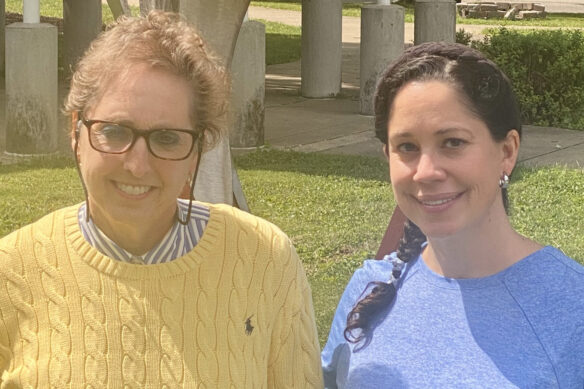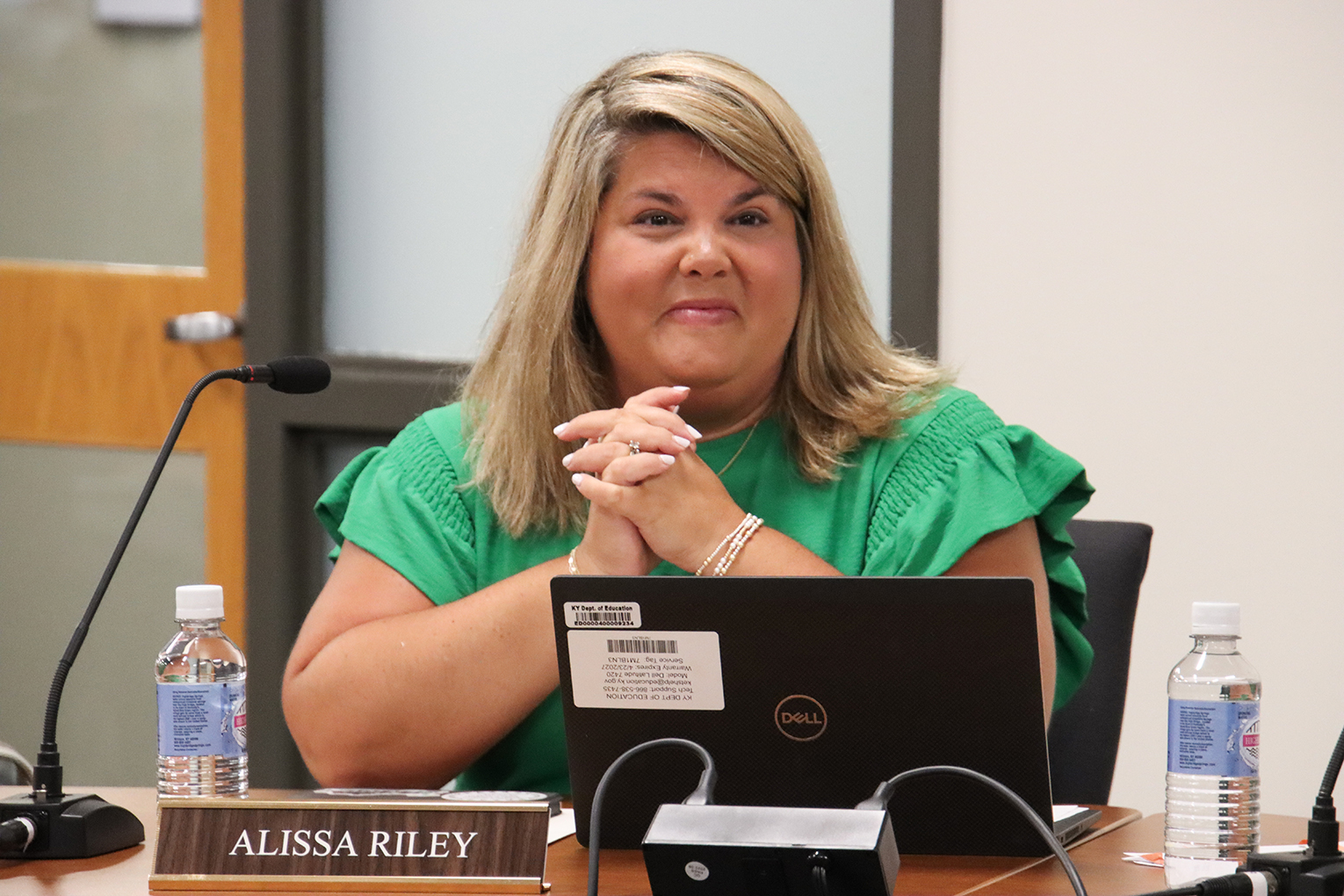
Beth Randolph and Meredith Raybould
The Family Friendly Schools certification process for the School for Creative and Performing Arts at Bluegrass (SCAPA) seemed to be a natural progression of our dedication to creating an inclusive and welcoming environment for all students and their families. Our principal puts family engagement at the forefront of our school’s culture, and the elements of a Family Friendly School have been in place at SCAPA (Fayette County) for years. For us, it was a matter of having our team explore the application process to determine our areas of strengths and weaknesses and to make a plan going forward.
Our family and community engagement team is composed of teachers, support staff, administrators and family members of our students. Meeting monthly by Zoom or individually at the school, all team members were encouraged to give input into evaluating our school and helping develop a plan to address our areas of weakness.
Sharon Mofield-Boswell, a district liaison, was also helpful in highlighting our school’s merits and our opportunities for improvement, and she worked with us over the summer to ensure that our application reflected the work SCAPA devotes to family engagement.
The certification rubric provided by the Kentucky Collaborative for Families and Schools made this evaluation effective and sparked enthusiastic discussion about what makes SCAPA family friendly and how we can work to reach families who may not feel included or welcome. We decided that next spring, in addition to our current conference plan, we will incorporate school-wide student-led conference nights. We are choosing to facilitate student leadership by giving them the voice in explaining their academic goal setting and demonstrating their growth through the year to their caregivers, and we look forward to developing this area of shared responsibility.
One important thing we learned is that the school year before the COVID-19 pandemic (2018-2019), SCAPA had 100% of our families engaged in some type of school event (Family Night, parent conferences, orientation, open house, school plays, chaperoning field trips, assisting with production sets, costumes, props, etc.) at some point. This high level of engagement is a result of several factors, including our performing arts curriculum with events that encourage family participation, as well as an intentional effort by staff to reach out to families to make them feel welcome by providing several leadership and volunteer opportunities throughout the building, and to always respect the hopes and dreams that every family has for their child. Our plan is that every school year moving forward, we are back to this high level of engagement. To help us meet this goal, our teachers are tracking their family engagement interactions for every student in our community.
SCAPA initially began its focus on parent/family and community involvement and engagement by looking at strategies and initiatives through the research of Joyce L. Epstein at Johns Hopkins University, where family and community engagement centers around six areas of involvement:
- Parenting: assisting parents in their understanding of child through teenage development and making sure they have the necessary resources and concepts for creating a home environment conducive for learning;
- Communicating: constructing and managing a system of communications that is two-way in nature so that teachers, parents, family, and community effectively and efficiently communicate any information, and concerns are disseminated and received;
- Volunteering: enlisting, arranging and managing adequate assistance for tasks supporting school initiatives and student learning. These tasks occur both in the school and outside the school;
- Learning at Home: developing and organizing information and ideas on parent assistance with homework and curriculum-related activities. With the proper teacher leadership, all parents can become involved with their children through this involvement strategy. It is undoubtedly the most educationally significant way parents can impact their children’s learning. Unfortunately, it is also the one that teachers usually implement last because of the difficulties in putting it into practice. COVID-19 propelled the learning at home component to reach new heights. Parents sat in on our classes and learned right along with their students so they could assist and teach at home;
- Decision Making: giving all parents the opportunity to serve in leadership capacities. These positions might be on the school-based decision-making council or committees connected with that governing body. Other places needing parent leadership would be on the parent boards and associated committees. Finally, it is imperative that schools make it clear that parent input and voice is desired and requested in a true partnership school; and
- Collaborating with the Community: identifying, securing and using the community’s resources to support student achievement and family well-being. Likewise, we find ways the school and its resources can benefit and support the community.
SCAPA joined the National Network for Partnership Schools, an organization affiliated with Johns Hopkins University, to help us be as family friendly as possible. At SCAPA, we attest to the importance of this work and see it as a huge component to our success with students.
SCAPA runs on the strength of our students, our teachers, and our school’s family community. Our principal compares this trifecta to the three branches of government, where each branch is equally important for the greater good. To be recognized for our dedication to families is a privilege and an honor that we are proud to accept as we continue our never-ending work of family engagement.
Beth Randolph is principal of SCAPA at Bluegrass in Lexington, and Meredith Raybould is the arts facilitator. SCAPA, which is counted among middle schools in Fayette County Public Schools, serves gifted and talented students in grades 4-8.



Leave A Comment